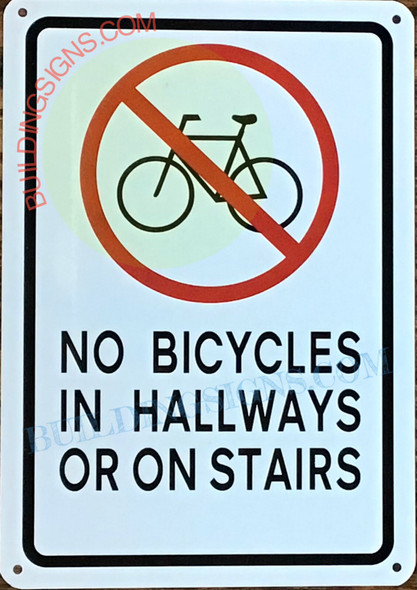HPD DO NOT STORE in hallway sign (7X10,WHITE BACKGROUND, Aluminum)
- Availability:
- USUALLY SHIP WITH IN 1-2 BUSINESS DAY
Description
Do not store any personal property in hallway basements or steps sign
7X10 WHITE BACKGROUND Size 7 Inch x 10 Inch Sign Thickness 0.4MM Sign letters color: Black Sign background color: White Sign . Sign material: Aluminum. Reflective Sign
A "Do Not Store Any Personal Property in Hallways, Basements, or Stairs" sign is a visual indicator used to communicate the restrictions on storing personal property in public areas of a building. This type of sign is typically posted in apartment buildings, condominiums, or other multi-unit buildings, and informs residents and guests of the restrictions on storing personal property in common areas. The purpose of the sign is to ensure that common areas, such as hallways, basements, and stairs, remain clear and accessible, and to prevent hazards or fire hazards that can be created by the accumulation of personal property in these areas. The sign may also include information on the consequences of violating the restrictions, such as fines or the removal of personal property. The sign serves as a clear and concise way to communicate the expectations and responsibilities of individuals who live or visit the building, helping to ensure the safety and accessibility of common areas.
A "Do not store any personal property in hallway, basements, or steps" sign is a reminder to individuals not to use common areas such as hallways, basements, or steps for storing personal property. The purpose of this sign is to ensure that these areas remain clear and accessible for emergency and maintenance purposes, as well as for general safety and accessibility for all residents or building users. The sign also helps maintain the appearance of the building, as cluttered and obstructed common areas can detract from the overall appearance and value of the property. This type of sign is commonly found in apartment buildings, condominiums, and other multi-unit dwellings.
DISCLAIMER DISCLAIMER ON LEGAL CODES DISCLAIMER ON SIGN USE GENERAL INFORMATION DISCLAIMER
We are a small, family-owned and family-operated Brooklyn-based business. We are not a City of New York store, nor are our website, products, or services affiliated with the City of New York or any agency of the City of New York. Neither we, nor our business, websites, products, services, or any hyperlinks from our website are sponsored by, approved by, affiliated with, endorsed by, or connected to the City of New York or any agency of the City of New York, including but not limited to HPD, DOB, DOT, DSNY, FDNY, or any federal entity, directly or by implication.
The codes, regulations, and requirements referenced on our website may not represent the most recent or updated versions. State, federal, or local regulatory agencies may have more current or accurate information. We make no warranties or guarantees about the accuracy, completeness, or adequacy of the information provided on this site or linked from it. Customers should verify all information by reviewing the official sources directly.
The requirements for sign content depend on intended use and applicable laws. The buyer is solely responsible for determining the appropriate content for a sign or package of signs. We make no warranty or representation regarding the suitability of any sign for a specific application. It is the customer’s responsibility to ensure that the signs ordered are in compliance with all applicable state, federal, local, and municipal laws. Customers are encouraged to carefully review our Terms and Conditions prior to purchase.
All content on this site is provided for informational purposes only and does not constitute legal advice, professional advice, or a definitive statement of law. For guidance on specific requirements, customers should consult the laws and regulations referenced, as well as any rules applicable in their jurisdiction. You may wish to consult with an attorney or qualified professional to ensure compliance with all applicable legal obligations.



















